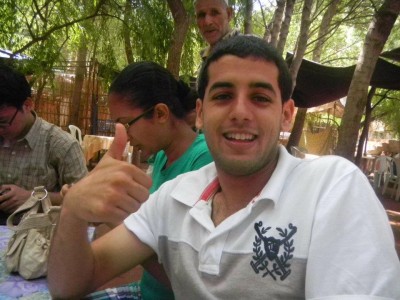EDUCATION
Generally Moroccans grow-up speaking one of two languages, Darija or Amazigh. Darija is the Moroccan Dialect of Arabic, influenced heavily by Amazigh and French. Never taught in school, Darija’s spelling isn’t standardized and certain vocabulary and pronunciation change within the country. Amazigh is the name applied to a diverse group of dialects spoken by the native non-Arabs in various places in North Africa. In certain areas, like Merzouga where I entered the Sahara, people may speak Amazigh and have no knowledge of Arabic. Amazigh became a written language with it’s own script for the first time in 2004.
Moroccans in grade school begin learning Modern Standard Arabic and French. Amazigh children will also learn Amazigh, meaning they study three different scripts. Grade schools in the north or very south of Morocco (where the Spanish protectorate was) may also begin learning Spanish.
Moroccans in high school continue studying French and MSA and may add on English and/or Spanish as well. College language study is just as variable as in the United States.
THE RESULT
People remember the foreign languages they use. Thus professionals and businessmen, or those in the tourism industry usually keep up fluency in MSA and a few European languages. Shopkeepers, on the other hand, knew numbers or could explain the greatness of their products in French but usually not much more. (Granted they may have never completed grade school). Taxi drivers likewise knew the French names of places and maybe even some basic greetings in English but nothing more. There were exceptions, however.
The result of this country’s many languages is interesting. In America knowledge of foreign languages is a nice little plus, but here it’s necessary for most jobs. For instance my friend Adel speaks fluent Darija, MSA, French, English, Amazigh, and quite a bit of Dutch, and this has earned him a customer service job a Match.com.
The lesson from this experience has been that Americans should study foreign languages but also something else, because other countries prioritize language more in education and provide environments where multilingualism naturally flourishes, while in America we may study some Spanish in high school and never NEED it, but on the other hand have great programs in subjects such as business or science that Moroccans often leave their country to acquire.

